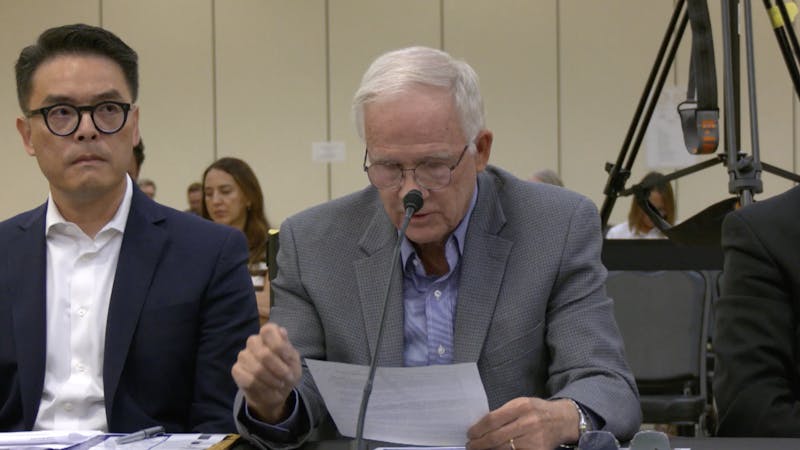How GREEN is Rice
Rice has been improving its green awareness and sustainability, but has room for improvement according to the 2011 College Sustainability Report Card published by the Sustainable Endowment Institute. Rice University received a B+ overall, taking it out of the category of Campus Sustainability Leaders. The grade is in fact an improvement from last year's B, but according to the report card's press release, several other universities, such as Yale University, Brown University and the University of Minnesota, drastically improved sustainability and cost-saving measures in the past year, moving them up to the A or A- category. With increased competition, Rice did not make the cut to be a sustainability leader this year.
The Sustainable Endowments Institute, which has released the report card every year since 2006, reviews more than 320 schools across North America through three surveys that universities fill out - focused on practices in administration, dining and endowments - and a student survey. The results are divided into nine grade categories.
According to the same survey, though, Rice is still tied for first in the state of Texas with the University of Houston, Southwestern University and the University of Texas at Austin.
"We're getting a really good broad picture of the campuses," Christina Billingsley, the Senior Research Fellow at the Sustainable Endowments Institute, said.
Rice filled out all four surveys, and in most areas, such as green buildings and energy use, received an A or B. Only two areas - administration and endowment transparency - received a C and D, respectively. Student involvement is expected to improve the grade.
McMurtry College junior Rachael Petersen, a member of the Rice Endowment for Sustainable Energy Technology Committee, said that while the practices in those areas are not directly related to campus sustainability, they have some importance because the administration of a university has the final say on most projects.
"Things that are behind the scenes can have a big impact," Petersen said.
Director of Sustainability Richard Johnson also said that focusing on the endowment of a university has historical importance. He compared the situation to the time of South Africa's apartheid, when universities refused to make investments in South Africa.
"While it might not have directly changed the system, it made a powerful statement," Johnson said.
However, Johnson said he does not put too much importance on the report card, which is just one of many.
Johnson also said the methodology for grading is not always transparent. While he agrees with the grade overall, he said he does not agree with the grade in the administration section, which decreased from last year's B.
"If this were a class, that would be where I would ask for a re-grade," Johnson said, saying Rice could not have improved in sustainability without administrative leadership.
According to Billingsley, what mostly decreased Rice's grade was the absence of formal green policies. Billingsley said the SEI is trying to make its grading a more exact science by requiring the university to explain these policies.
However, Billingsley added that students can have a lasting impact even on these two areas in a university by simply mobilizing.
"You should take it upon the students to enforce the programs and ensure that it is a priority," Billingsley said.
Some examples of effective student involvement include joining committees and having competitions between dorms at Rice.
Johnson, who teaches two classes on sustainability, said that student involvement has always been one of Rice's strong points. For example, the sustainability policy adopted by the Board of Trustees was drafted by students in 2004, and students' brainstorming created his job.
"There is a deep connection between sustainability and student involvement," Johnson said.
One such student initiative on campus today is RESET, which provides funding for student sustainability projects. Seven proposals have been submitted for the spring, a number that Petersen hopes will increase once the initiative finds its footing.
"RESET is letting the students question the university's policies," she said. "If the administration is getting a low score, we will try to address that in a grassroots way."
While RESET itself cannot substitute for good administrative policies, Petersen said she hopes RESET will push the administration to rise to the challenge as well.
According to Billingsley, that has been the goal of the report card all along. She said the SEI hopes that universities can act as role models in sustainability policy.
"We hope to create and maintain dialogue among universities and in the public," she said.
More information can be found at http://www.GreenReportCard.org.
More from The Rice Thresher

Rice announces Chao College as 12th residential college
Rice announced that the 12th residential college will be named Ting Tsung and Wei Fong Chao College Aug. 19. The college, set to open in fall 2026, will contain nearly 300 on-campus beds.
Dining access fund announced following on-campus unlimited meal swipes
Rice announced new food assistance programs on Tuesday to account for the controversial change in the on-campus meal swipe plan.

Rice disaster prediction model discussed at hearing on deadly Central Texas floods
The House and Senate Select Committees on Disaster Preparedness and Flooding held a hearing on July 31 in Kerrville to address the deadly July 4 flooding in Central Texas. The flooding along the banks of the Guadalupe River killed 108 people, including 37 children. In the charged hearing, Texas lawmakers and flood survivors criticized the local response to the disaster.


Please note All comments are eligible for publication by The Rice Thresher.